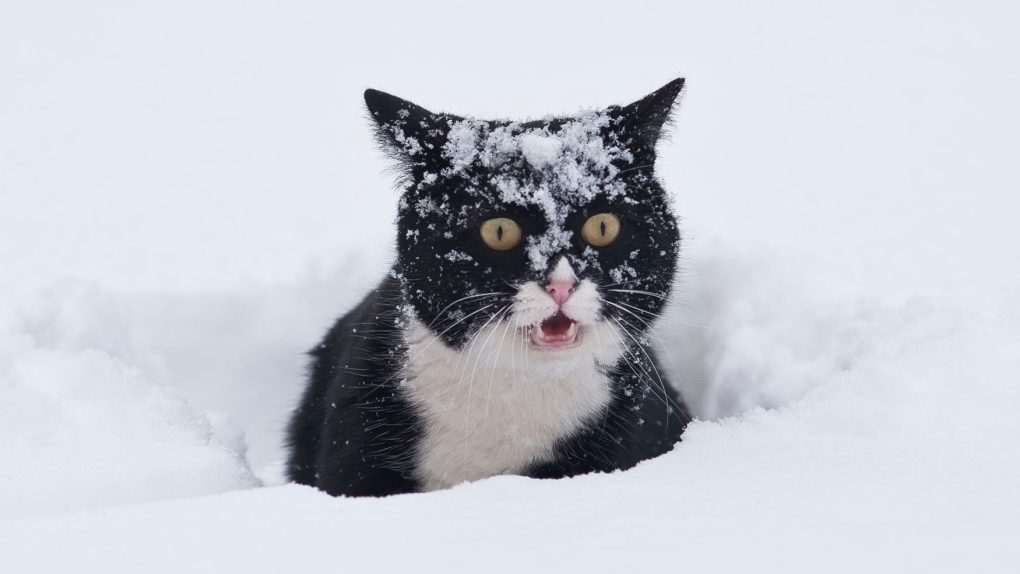- Domestic cats are a massive burden on wildlife around the globe, with birds and small mammals being their two favorite targets.
- Cats that are allowed to roam free often hunt despite having food available at home, but scientists just figured out a way to prevent them from killing wildlife.
- Feeding a cat a diet high in meat protein can help stop domestic cats from feeling the need to hunt.
We love our pets and we like to think they love us, but they’re still animals. Try as we might, it’s impossible to totally erase countless generations of instinct that is hard-wired into their brains and bodies, and when it comes to cats that means accepting the fact that they’re going to probably kill some stuff every now and then.
Cats — especially those that are allowed to roam freely in a neighborhood or countryside — will almost always end up hunting wild game despite having a steady supply of food at home. When your cat leaves a dead bird on your doorstep, it might seem like no big deal, or perhaps even a charming reminder of how brutal nature can be, but cats actually pose a huge threat to bird and small mammal populations, but science may have come up with an answer.
In some countries, domestic cats are such a burden on wildlife that there are laws to mitigate their impact. Some areas even have cat-free wildlife sanctuaries where bird populations can recover from the toll that domestic cats take on them. As it turns out, it’s humans that may be able to stop our feline friends from feeling the need to hunt, and it actually sounds pretty simple.
A new study published in Current Biology focused on some pretty basic lifestyle changes that people can initiate for their cats that appear to have a serious impact on their desire to hunt and kill. The scientists conducted trials of multiple interventions — including instituting a diet high in meat protein and providing up to 10 minutes of stimulating playtime per day — and monitored how those changes affected the hunting habits of cats.
Some of the things they tested, such as cat bells and high-visibility collars, had serious limitations. The cat bells appeared to do very little to change the likelihood of a cat successfully killing wild game, and while the collars did work to limit the number of birds the cats killed, it didn’t prevent them from killing small mammals. The diet and playtime trials, however, were reliably consistent in their ability to cut back the hunting of the cats. Using puzzle feeders, where the cat has to work to get its food, actually increased the likelihood of hunting.
“Households where a high meat protein, grain-free food was provided, and households where 5–10 min of daily object play was introduced, recorded decreases of 36% and 25%, respectively, in numbers of animals captured and brought home by cats, relative to controls and the pre-treatment period,” the researchers write.
That’s a pretty significant change. So, if your four-legged friend has been leaving too many dead mice and birds around your home, feed them some protein and take some time to play with them. The wildlife will thank you.








